The "crying" rhino that had its horn hacked off by poachers has been released back into the wild in South Africa.
The Southern White rhino, called Seha, was the only surviving victim out of five rhinos involved in a poaching attack back in 2016. Seha was left for dead and found by police two weeks later.
Following the attack, a picture of Seha with tears streaming down his face went viral, sparking outrage among animal lovers around the globe. Since his rescue, Seha was kept in a closely monitored paddock and underwent 30 operations for his injury.
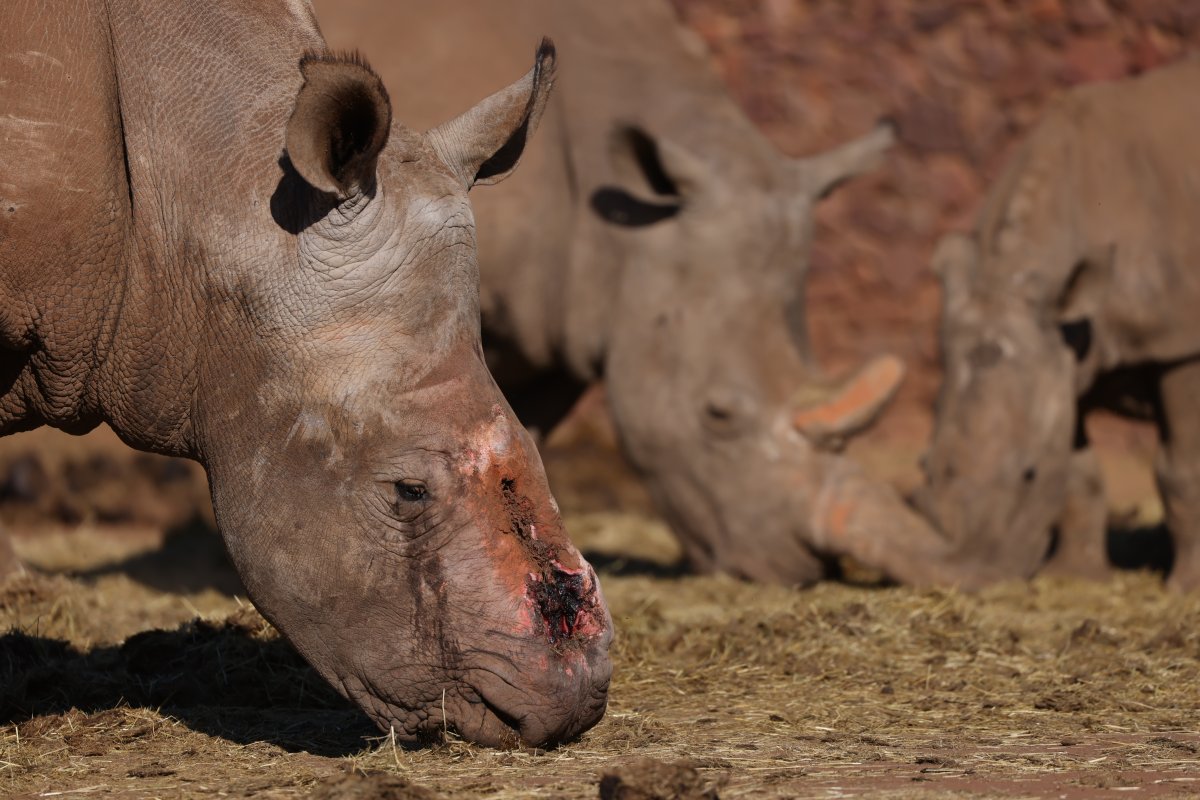
Seha was taken in by Saving The Survivors, a vet organization that rescues animals who have survived poaching attacks.
Tristan Wood, director of Saving the Survivors, told Newsweek: "Over half of rhinos succumb to their injuries and die after being attacked by poachers, because of the nature of the way poachers hack away," he said. "The attack removed everything including parts of the skull. So he did have a horrific wound, but he managed to survive.
"Sadly, rhinos have very little legal value in South Africa. When we were called to get him by local police, they obviously thought that we'd just come in and euthanize him ... when our founder Dr Johan arrived, we knew that with the dwindling numbers of the species, we had to do everything we could to try and save him."
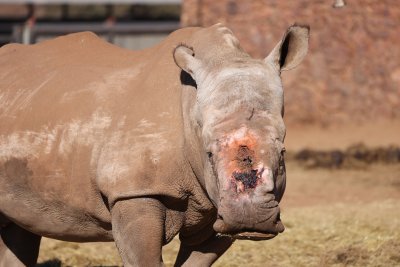

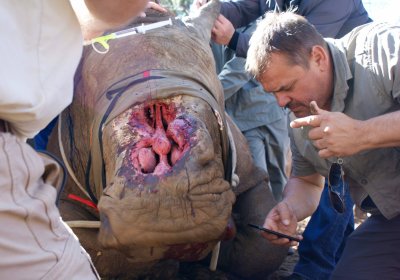
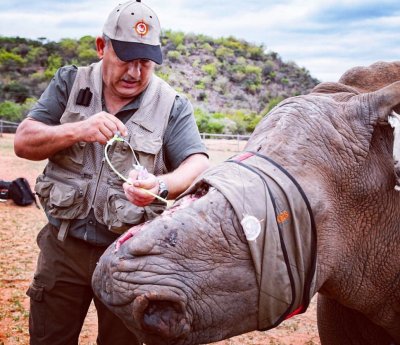
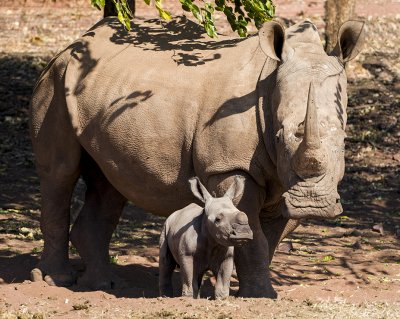
Now, after years of extensive operations and care, Seha will be released into the Marataba reserve on January 24.
Wood said that even though Seha will effectively have a life in the wild, being at this reserve will allow him to be closely monitored and taken in for wound care when needed.
Rhino horns are poached for use in traditional Chinese medicine, however it is also used as a status symbol to display success and wealth.
Wood said that it has seen "a real resurgence recently," with around 1,000 poaching cases a year.
He said: "The figures are fairly fuzzy but if you stick a pin in it, if there are around 15 to 18,000 [Southern White rhinos] left, and there are 1,000 being poached a year, that means we're looking at extinction, certainly within our generation."
He said that while there was a lull at the beginning of the pandemic, it also meant many migrant workers being unable to work abroad to send money back to their families. This has resulted in many resulting to poaching in order to earn money.
Wood said: "Not a lot of people realize that animals can survive poaching. Around 50 percent of animals can survive, and without us stepping in, these animals are just euthanized ... poaching is no different to drugs or guns or any illicit product.
"Cartels who facilitate this trade can pay very desperate people, what to them is life changing amounts of money. Pay a poacher $2,000 or $1,000, and that's life changing amounts of money to to somebody whose family is living on $1 a day.
"So the percentage [of poaching] is getting higher. It's definitely something that's just getting a hell of a lot worse, not better."
Uncommon Knowledge
Newsweek is committed to challenging conventional wisdom and finding connections in the search for common ground.
Newsweek is committed to challenging conventional wisdom and finding connections in the search for common ground.
About the writer
Robyn White is a Newsweek Nature Reporter based in London, UK. Her focus is reporting on wildlife, science and the ... Read more
To read how Newsweek uses AI as a newsroom tool, Click here.








